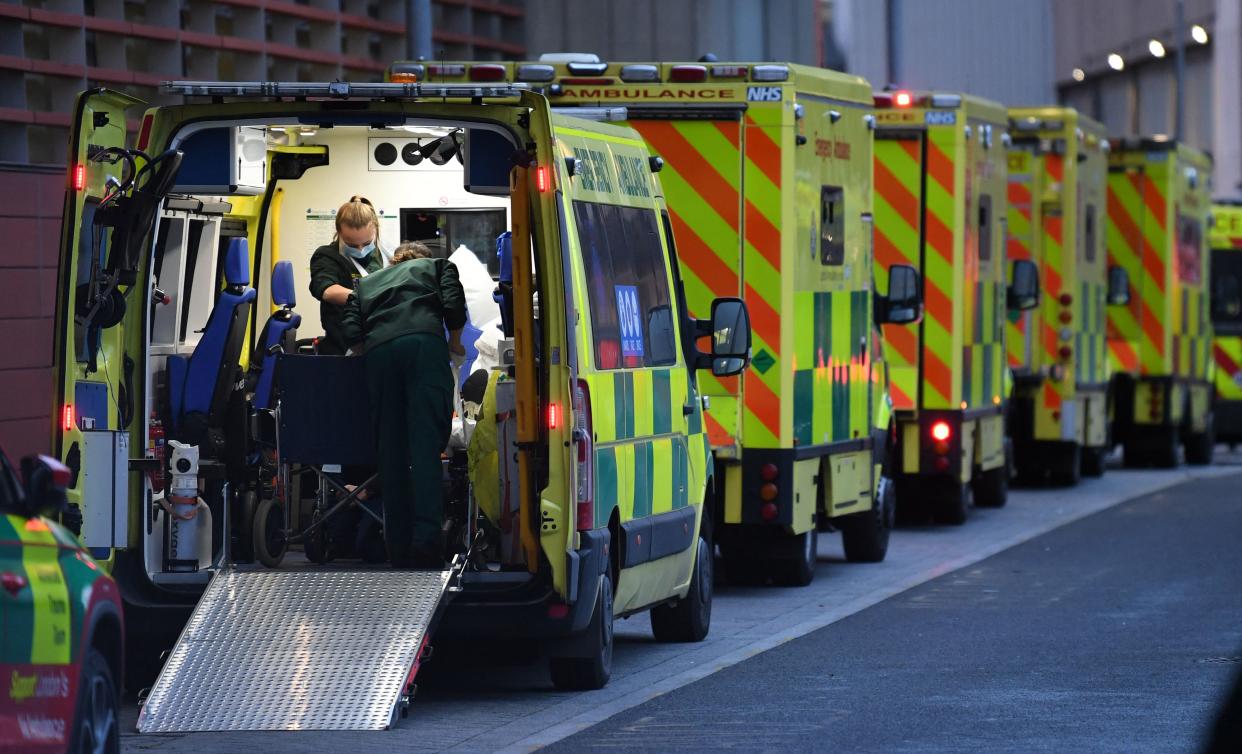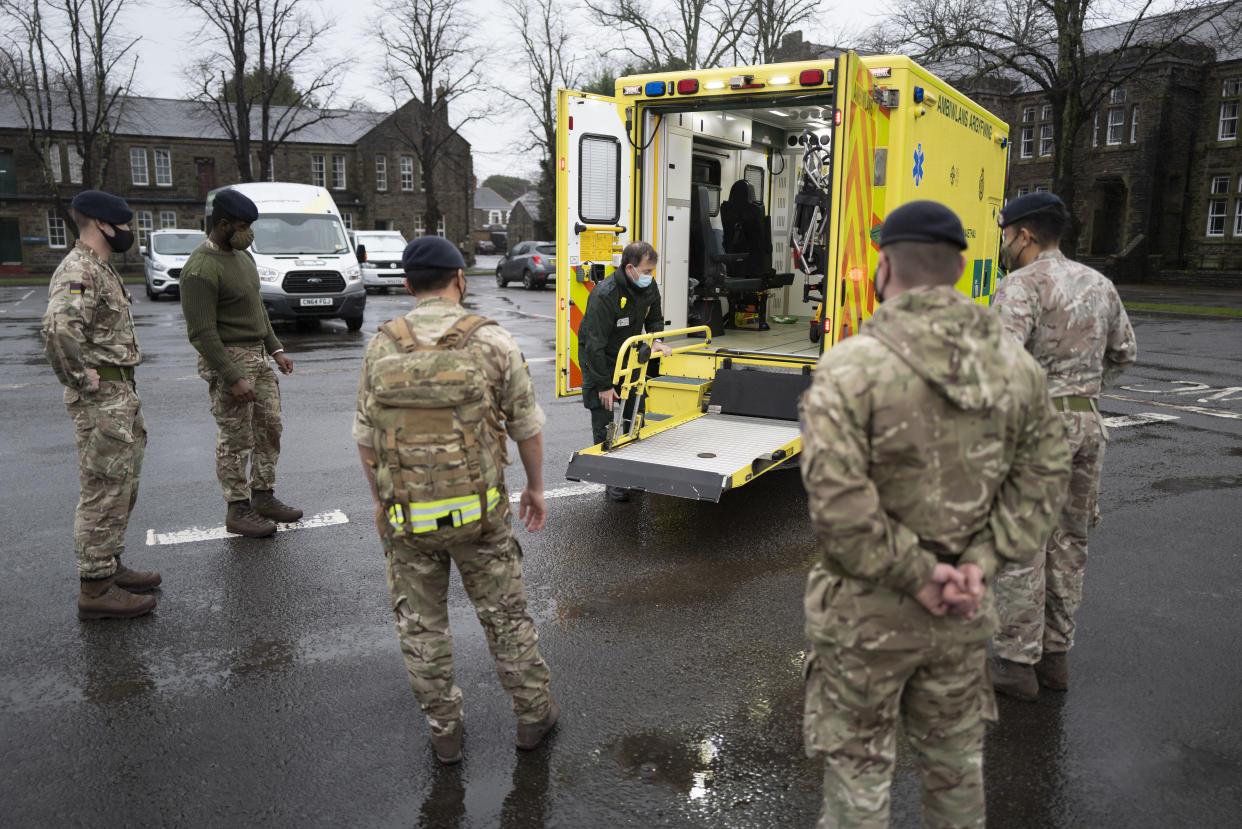Ambulance workers may ignore cardiac arrests amid strikes, union boss warns
Ambulance workers may not provide “life and limb care” amid disputes with the government over industrial action, a union officer has warned.
Alan Lofthouse, of Unison, told Sky News that life and limb care referred to critical care such as cardiac arrest.
“The trouble is, if the government don’t start talking to us, the staff will get increasingly frustrated with this war against them as they see the rhetoric from the government,” he said.
“And they then may choose not to provide life and limb cover, which is a place that I don’t think any of us wants to get to.
“So there’s a real urgency for the government to wake up, stop looking at ways to prevent striking workers from striking and talk to us about paying the cost of living.”
Ambulance workers are set to strike on 21 December in a dispute about pay.
The government is currently facing waves of strike action from various sectors, with Royal College of Nursing members due to take part in unprecedented strike action on 15 and 20 December.

And the BMA, which represents 173,000 UK doctors, will also open a ballot on 9 January for industrial action by its 45,000 junior doctors in England.
Royal Mail employees and many rail staff are already midway through a series of strikes about pay, with disruption to post and travel due to last into the new year.
On Sunday it emerged that Army troops are being trained to drive ambulances ahead of strikes as the government held emergency COBRA meetings to limit disruption.
The Cabinet Office confirmed that military personnel are being deployed to NHS hospital trusts across the UK to "familiarise themselves with vehicles".
There will be 750 military personnel deployed, with 600 driving ambulances and 150 in support roles to cover 10,000 ambulance workers going on strike.
Watch: Troops training to drive ambulances as ministers hold emergency strike meetings
Two emergency COBRA meetings will also be held this week as ministers step up plans to limit disruption caused by industrial action, which is set to take place every day until the end of the year.
Lofthouse warned that military personnel alone could not support the country in absence of ambulance workers.
He said: "I think that all of our ambulance workers in Unison respect the military and respect the support that they're offering, but of course, your correspondent called us ambulance drivers.
"This is far from the truth, actually, they're highly trained, urgent emergency care workers who know how to work in the NHS, and the military can't just be put in place of ambulance workers and expect that the service is going to run as normal.
"I mean, it's a great offer by the military, but it's not going to go anywhere near stopping the strikes and walkouts that are due to happen on the 21st."

Last week the NHS was labelled as “bursting at the seams” as waiting lists hit a record high, while A&E departments experienced their worst performance on record.
Sarah Scobie, deputy director of research at the independent health think tank The Nuffield Trust, said: "NHS hospitals are desperately struggling to get patients in and patients out fast enough, and the situation continues to deteriorate as the temperature drops and we head into the most challenging winter months.
"Data shows the severe impact on staff with these delays, resulting in the loss of an average of 3,400 hours of ambulance staff time per day which could be used for patient care.
"Ambulances are one of the most visible and vital cogs of the emergency care machine, and it is becoming more painfully visible that they are under severe strain. The Government has confirmed additional funding to tackle the delayed discharges behind some of these problems, but it is far too late in the day to have a meaningful impact this winter.
"On top of confirmed ambulance and nurse strikes, unfortunately winter will keep getting harder for patients and NHS staff.”
On Monday afternoon members of two unions in Scotland voted to accept an increased pay offer from the Scottish government and call off strikes. Strikes by ambulance workers and nurses will not now go ahead in Scotland, but will still take place in England, Wales and Northern Ireland.


